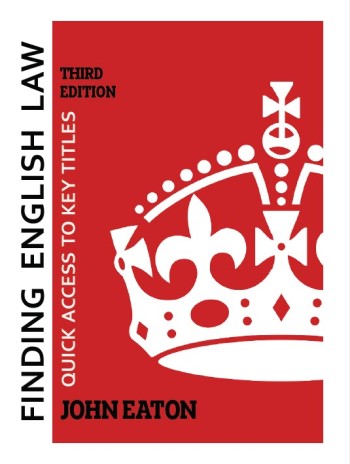
Secondary sources are a great place to begin your legal research, especially if you are not familiar with English law. They can provide foundational information on the legal system and certain areas of law as well as point out relevant legislation and leading cases.
Halsbury's Laws of England is the authoritative legal encyclopedia for English and Welsh law. It is a great resource for researchers looking to quickly familiarize themselves with an area of English law, as well as to find leading cases and relevant legislation.
Halsbury's is available on Lexis and is updated frequently.
Books, textbooks, journal articles, and other secondary sources are fantastic options for familiarizing yourself with a particular area of English law. You can also use this information to guide your search for relevant legislation and case law.
►See Textbooks, Treatises, and More to learn how to find books and ebooks using Omni.
►See Journal Literature for several strategies for finding journal articles.
 Finding English Law, 3rd ed
by
John Eaton
Finding English Law, 3rd ed
by
John Eaton
Did you know that the same term can have different definitions in other jurisdictions? In addition, the same legal concept may have different names in different jurisdictions. It is a good idea to explore legal dictionaries to learn about different terminologies and how certain words or phrases are defined by UK judges.
 Stroud's Judicial Dictionary of Words and Phrases
by
Daniel Greenberg and Frederick Stroud
Stroud's Judicial Dictionary of Words and Phrases
by
Daniel Greenberg and Frederick Stroud